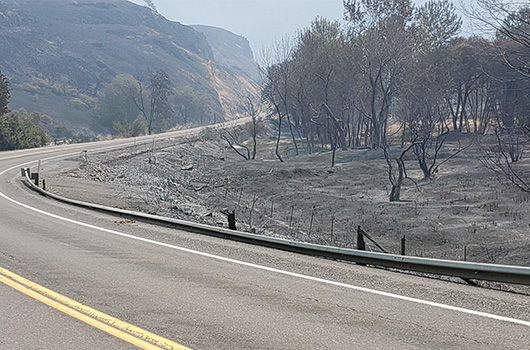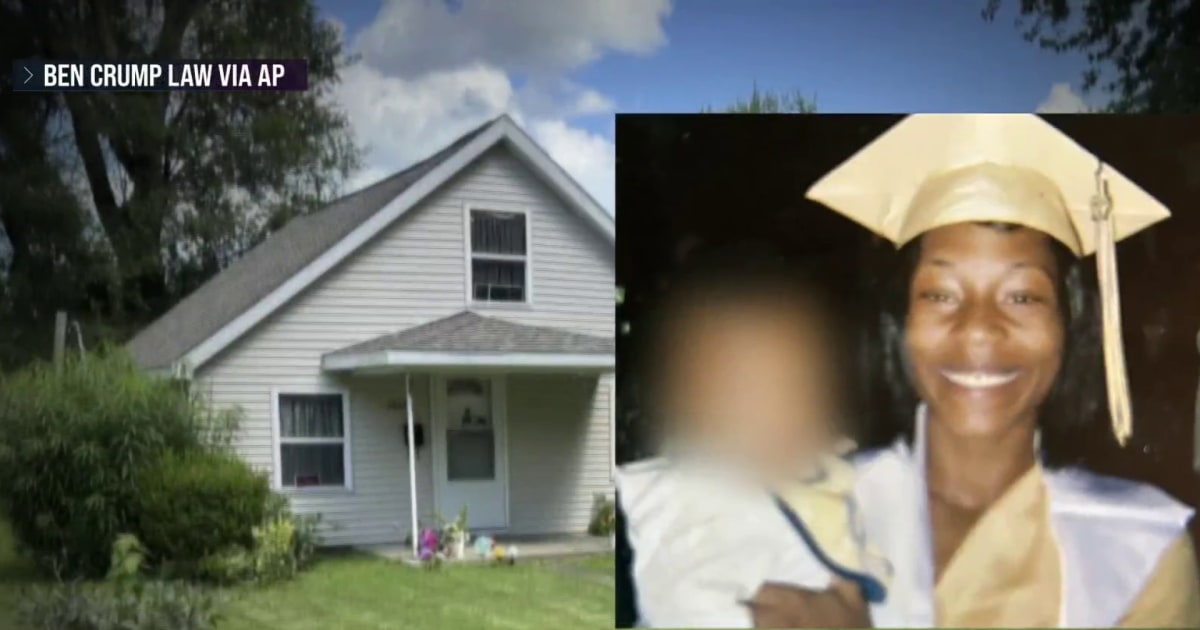Politics
Democratic Party chair Rusty Hicks assailed as outsider in bid for North Coast Assembly seat

At first glance, the Sonoma County Democratic Party’s 36th annual Crab Feed seemed the political schmoozefest it has been for nearly four decades.
For $70, Sonoma County residents could “bump elbows with elected officials” over a North Coast meal of Dungeness crab, salad and pasta served with locally produced red and white wines. But Democratic discord simmered beneath the pleasantries at the Feb. 23 decapod dinner.
The intraparty squabble involves who will replace Assemblymember Jim Wood (D-Healdsburg), who is retiring from his North Coast seat two years before most people expected. The shocking November announcement that Wood wouldn’t seek reelection for his final term after 10 years in the statehouse sent candidates scrambling to prop up campaigns with only a few months to raise money and support before Tuesday’s primary.
In his bid for State Assembly, Santa Rosa Councilmember Chris Rogers has emphasized his leadership in helping guide the region through drought, wildfires and the COVID-19 pandemic.
(Josh Edelson / For The Times)
Three top candidates quickly emerged: California Democratic Party Chair Rusty Hicks, Healdsburg City Councilmember and nonprofit executive Ariel Kelley as well as former Santa Rosa mayor and current Councilmember Chris Rogers.
Disagreement among local Democratic leaders over who should represent Assembly District 2 — a left-leaning, geographically diverse region stretching from Santa Rosa to the Oregon border — has transformed the race into one of the most expensive and divisive in local history.
The Democratic trio are competing for a top-two placement in the March 5 primary, likely alongside the only Republican in the race who conceivably has enough GOP votes in the district to send him to the November general election. A majority of the district’s voters are registered Democrats, so the Democratic candidate who makes it through the primary has a good chance of winning in November.
The district spans five counties — part of Sonoma plus all of Mendocino, Trinity, Humboldt and Del Norte — a roughly seven-hour drive from top to bottom. It takes in 307,000 voters, many of them working-class, across its rural geography. Many residents contend with a shortage of affordable housing, well-paying jobs and limited healthcare access. The region faces growing environmental threats, including deadly wildfires exacerbated by climate change.
The intensive jockeying among candidates to gain traction with voters was evident at the crab event.
“Vote Chris Rogers” buttons competed with “ARIEL” stickers, while Hicks sponsored a table prominently positioned at the front of the hall, where he sat across from Wood and Assembly Speaker Robert Rivas (D-Hollister).

A supporter wears a pin advocating Chris Rogers for State Assembly at a crab-eating event in Santa Rosa.
(Josh Edelson / For The Times)
Much of the political brouhaha revolves around Hicks, 44, who moved to the region from Los Angeles only a few years ago — a blip in time by some local standards — but who brings with him considerable funding and clout. He is endorsed by outgoing Assemblymember Wood, Gov. Gavin Newsom, U.S. Sen. Laphonza Butler, veterans groups and a long list of powerful statewide labor organizations, among others.
Hicks is proving a formidable candidate. He’s a Texas native and Afghanistan War veteran who was president of the Los Angeles County Federation of Labor before being elected Democratic Party chair in 2019. His reputation as a skilled strategist and even-keeled leader in the labor movement helped him dominate that race as the party looked to correct course in the aftermath of an internal sexual misconduct scandal.
His campaign messaging centers on safeguarding district jobs, creating more affordable housing options and expanding access to healthcare in a region with few medical clinics. He has also emphasized environmental preservation, an issue that resonates in a region home to towering redwoods and vast state and national parkland.
“I’m running because I’ve got a long track record of delivering real results for real people,” Hicks said.

Rusty Hicks, chair of the California Democratic Party and a longtime Los Angeles labor leader, says he and his wife moved to Humboldt County in 2021, after falling in love with the area. Opponents to his Assembly bid question his North Coast credentials.
(Josh Edelson / For The Times)
His opponents describe him in a different light.
Skeptics accuse Hicks of carpetbagging his way from Los Angeles to Humboldt County with ambitions to run for office, and have blasted his long list of donations from Southern California and Sacramento as evidence that he lacks connections to the people he wants to represent.
He’s also faced criticism for maintaining his influential position as party chair while campaigning for Assembly. Hicks said he has suspended his pay and benefits during the race and pledged to step down if elected.
Hicks said he and his wife bought their home in Arcata in Humboldt County in 2021 after falling in love with the North Coast while he was running for party chair. His campaign, he said, is “funded by individuals and workers and the unions that represent them,” a coalition that many backing his candidacy say no Democrat should be criticized for.
Hicks faces a strong opponent in Kelley, 41, a former mayor of Healdsburg, whose endorsements include local government officials and statewide groups dedicated to electing more women to office and expanding access to safe abortion services.
A political action committee supporting Kelley — largely funded by her sister, who poured at least $200,000 into the PAC — has sponsored ads accusing Hicks of covering up sexual harassment in the Democratic Party, an allegation he and his proponents angrily deny. His campaign sent local TV stations cease-and-desist letters warning them against continuing to run ads that Hicks maintains are “patently false.”
Hicks has clapped back with criticism of Kelley’s investments in the oil industry and questioned her connections to a local developer who recently donated $50,000 to the political action committee.
“It’s unfortunate when some candidates and their supporters conclude that they can no longer talk about their own record or run on their own record and decide to lie about mine,” Hicks said.
Kelley said she doesn’t communicate with the PAC or her sister about its strategy, and agrees the negative campaigning is unhelpful. She said her father died last year and left her a trust that held investments “in a number of industries,” and that she plans to divest from those in oil and gas.

Ariel Kelley, a former mayor of Healdsburg, is one of the Democratic candidates for a North Coast Assembly seat. She is endorsed by local government officials and statewide groups dedicated to electing more women to office.
(Josh Edelson / For The Times)
She’s called the attacks “completely baseless” and a distraction from real issues facing district voters, such as the need for paid family leave for rural families, ensuring access to reproductive healthcare, improving housing affordability and reducing homelessness.
“I’m really focused on just talking about my record of delivering. Because it’s a very strong record of delivering for this community, on homelessness, on wildfire prevention, on housing, healthcare access,” she said.
Rogers, 36, who has also mounted a fierce campaign, has called for his opponents to end the “mud-slinging,” even as he’s expressed many of the same concerns about Hicks’ fundraising strategies.
Raised in Sonoma County, Rogers worked for a decade as an aide to congressional and state legislators in the district before launching his career in local politics. He contends he is most qualified to represent the district after steering the region through emergency after emergency as Santa Rosa’s mayor and during his time on the City Council, including the COVID-19 pandemic, a drought, flooding and devastating wildfires.
Rogers is endorsed by Senate President Pro Tem Mike McGuire (D-Healdsburg), whom he worked for as a legislative staffer, and a long list of city and county officials, a local firefighters group and environmental organizations. He said he’s focused on mitigating climate change, protecting local healthcare facilities from closing and addressing a critical narrowing of access to homeowners insurance in Northern California communities.
“I have that experience. Not just understanding the perspective, but how to translate needs in the district into legislative action,” Rogers said.
Yurok Tribe Vice Chair Frankie Myers, 43, is also running as a Democrat, hoping to become the second Native American elected to the California statehouse. Myers has received support from tribal communities throughout the state.
He’s tried, with limited success, to break through the bickering with his message about elevating tribal issues and the importance of environmental stewardship and universal healthcare.
“I’m learning it is a privilege running for state Legislature. It has a lot of barriers for low-income people, people from historically disadvantaged communities,” he said. “We’ve only had one single elected Native American in the state Legislature in the history of this state. And now having campaigned, there’s some realizations I’m coming to about why that is.”
Frankie Myers, vice chair of the Yurok Tribe, is hoping to be the second Native American elected to the California Legislature.
(Josh Edelson / For The Times)
A fifth Democrat, Mendocino County Supervisor Ted Williams, hasn’t raised money and is in effect using his campaign to encourage candidates to focus on rural issues. A sixth Democratic candidate, Cynthia Click, has withdrawn from the race, though her name will appear on the ballot.
Michael Greer, the one Republican running for the seat, has focused his campaign on bread-and-butter issues familiar to many California families, including public safety, the rising numbers of people living homeless and spiraling housing costs, along with North Coast-specific concerns similar to those raised by the other candidates.
“As one vote, as one Republican, can I change the votes on all these things?” Greer said of his potential effect in the Democratic-led Assembly. “No. But I can be loud enough to make sure that the rural areas are heard.”

Santa Rosa’s 36th annual Crab Feed gave voters a chance to meet leading candidates in the bid to represent residents in the geographically diverse Assembly District 2, which spans California’s North Coast.
(Josh Edelson / For The Times)
Wood said many of the candidates are using overly broad rhetoric to describe the district’s challenges and seem unfamiliar with the progress he’s made in addressing specific policy areas during his decade in Sacramento. The real challenge, he said, will be building on his successes to fine-tune those policies.
“It’s a hugely challenging district,” Wood said. “So you have to really commit to spending the time to learn it and to respect it to be able to help solve some of the problems that we face.”
Wood was quick to endorse Hicks’ bid for Assembly, saying he was confident the party chair would be a “workhorse” for the district.
“I respect anybody who wants to run here, but I think the depth and breadth of his experience and the things he’s done and his life experience make him the best candidate,” Wood said.
Wood noted, however, that he’s been surprised and disappointed by the negative campaigning.
“This is not what we’re used to on the North Coast,” he said. “I don’t like it, and I don’t think voters really like it either.”

Politics
Park Police union says officers ‘did everything they could’ during DC anti-Israel riot

Following the protests at Union Station by anti-Israel agitators defacing federal property in protest of Israeli Prime Minister Benjamin Netanyahu’s address to Congress, a Park Police union is pushing back against criticism that only a few arrests were made.
Thousands of Hamas-sympathizing agitators descended on Washington, D.C., Tuesday, at one point defacing federal monuments with phrases in support of the terrorist group responsible for the Oct. 7 attacks in Israel, saying, “Hamas is coming.”
Twenty-three people were arrested at the protests, but some have suggested that number should have been higher.
Sen. Marco Rubio, R-Fla., posted on X, “How many more times are they going to allow leftist degenerates who support terrorism and hate America to vandalize property and attack police? There should have been hundreds of arrests today in D.C. not just 23.”
HOUSE REPUBLICANS REPLACE AMERICAN FLAGS AT UNION STATION AFTER ANTI-ISRAEL PROTESTS
The Columbus Memorial Fountain at Union Station during an anti-Israel protest on the day Israeli Prime Minister Benjamin Netanyahu addressed a joint meeting of Congress on Capitol Hill in Washington July 24, 2024. (Reuters/Seth Herald)
But the U.S. Park Police Labor Committee is pushing back.
“Our officers on the ground did everything they could to protect life and property. In fact, despite having only 29 officers available to mitigate damage — 29! — with no additional help from the Department of the Interior, we processed several arrests for charges ranging from assault on a police officer to destruction of government property,” Kenneth Spencer, chairman of the United States Park Police Fraternal Order of Police, said in a statement.
“That’s why it’s so disheartening to hear some members of Congress and members of the media, many of whom describe themselves as ‘champions’ of law enforcement, suggesting that officers gave protesters a ‘pass’ or that insufficient arrests were made.
“Nothing could be further from the truth. Anyone who truly cares to understand the problem would see that our officer staffing crisis is at the root of our agency’s mission readiness. A small unit of 29 officers arrested 10 individuals while being assaulted by a mob of thousands. We simply did not have the staffing or resources to accomplish a mass arrest operation.”
SEE IT: THE MOST DRAMATIC PHOTOS FROM WEDNESDAY’S PRO-HAMAS WASHINGTON, D.C. PROTESTS

An anti-Israel demonstrator sprays graffiti on the Christopher Columbus Memorial Fountain at Union Station on the day of Israeli Prime Minister Benjamin Netanyahu’s address to a joint meeting of Congress on Capitol Hill in Washington July 24, 2024. (Reuters/Nathan Howard)
At least one demonstrator, whose face was covered, was spotted by Fox News carrying what appeared to be the flag of the terrorist group Hamas while others were heard shouting “Allahu Akbar.”
KAMALA HARRIS REACTS TO ANTI-ISRAEL RIOTS AT DC’S UNION STATION
Anti-Israel demonstrators burn an effigy depicting Israeli Prime Minister Benjamin Netanyahu outside Union Station on the day of Netanyahu’s address to a joint meeting of Congress on Capitol Hill in Washington July 24, 2024. (Reuters/Nathan Howard)
The White House condemned the protests Wednesday evening, calling the chaos “disgraceful.”
“Identifying with evil terrorist organizations like Hamas, burning the American flag or forcibly removing the American flag and replacing it with another is disgraceful,” White House spokesperson Andrew Bates said in a comment to Fox News Digital Wednesday evening.
Politics
Ali: Kamala Harris has a campaign soundtrack: Beyoncé's 'Freedom'

Vice President Kamala Harris’ bid for the presidency has a soundtrack: Beyoncé’s “Freedom.”
The leading Democratic presidential candidate took the stage in her first visit to her Wilmington, Del. campaign headquarters and again during her first campaign rally in Wisconsin as the song played.
Now the cathartic anthem graces Harris’ first campaign ad, in which she says: “There are some people who think that we should be a country of chaos, of fear, of hate. But us? We choose something different: We choose freedom.”
Pit that against the musical number her competitor chose for his grand entrance on Night 3 of the Republican National Conference. Donald Trump walked out to James Brown’s “It’s a Man’s, Man’s, Man’s World,” a tone-deaf choice for a former president found liable for sexual abuse, who’s bragged about sexually assaulting women, a married man who paid hush money to a porn star and a former president who rolled back women’s reproductive rights 50 years with the repeal of Roe vs. Wade.
Maybe the Godfather of Soul would have endorsed Trump’s usage of his song, but Brown would be breaking with decades’ worth of musicians who’ve decried GOP candidates playing their tracks at rallies and booster events. Adele, Rihanna, R.E.M., the Rolling Stones, Prince, Neil Young, Guns N’ Roses and Queen are among the many artists who’ve spoken out against Trump using their tunes for campaign purposes.
Heart bristled when the McCain-Palin campaign used “Barracuda.” Tom Petty insisted George W. Bush back away from “I Won’t Back Down.” Bruce Springsteen decried Ronald Reagan’s appropriation of “Born in the U.S.A.”
Beyoncé, however, gave Harris her blessing to use “Freedom,” a single from her 2016 blockbuster album “Lemonade.” The song, which features guest rapper Kendrick Lamar, is an explosive expression of empowerment. At the time of its release, it spoke to public outcry around police killings of unarmed Black men and women — Eric Garner, Tamar Rice, Freddie Gray — and protests that were largely fueled by the ire of younger generations.
Whether Beyoncé was singing about the tyranny of a cheating spouse or racial injustice (or both), the song became an anthem for a new, potentially potent block of the American electorate.
For the first time, Gen Z and millennials could now account for as many votes as baby boomers and their elders, groups that have made up a majority of the electorate for decades.
Folks under 40 have grown up with Beyoncé and her ubiquitous work. Think of Beyoncé like the Who for boomers — their work is everywhere (Republican Sen. Rand Paul played the band’s anti-war hit “Baba O’Riley” when he campaigned in 2015) — or Nirvana for Gen X, except no one cares what we think. Whatever, nevermind.
The Harris campaign’s smart choice of music coincides with a willingness to lean into a meme culture that shot up organically around the 59-year-old VP since President Biden announced Sunday that he was dropping out of the race.
Pop star Charli XCX showed her support for Harris when she tweeted “Kamala IS brat.” The British singer is referring to the TikTok and Twitter edits of Harris’ image superimposed to songs from Charli XCX’s hit album “Brat.” The avalanche of memes come from a video clip in which Harris talks about her mother’s response to the hubris of youth: “You think you just fell out of a coconut tree? You exist in the context of all in which you live and what came before you.”
Right-wing social media used the quote to deride Harris as inarticulate and a “word salad” master, but liberal swaths of Gen Z have since reworked the clip into emojis and memes that celebrate Harris’ nonconformist approach. She’s become a viral sensation, in a good way, unlike J.D. Vance’s damning “single cat lady” memes and a cringey internet joke about encounters with couches.
It’s rare that relevant talent will shill for a Republican candidate. Case in point: Trump’s pop culture ambassadors at this year’s RNC were Kid Rock, Kanye’s ex Amber Rose and former WWE wrestler Hulk Hogan, whose big moment was ripping his shirt off and screaming “Let Trump mania run wild!”
Harris chose to let freedom ring, and she has Queen Bey behind her.
Politics
Texas sues Biden administration over program giving birth control to teens without parents' knowledge

Texas officials are challenging a recent order from President Biden’s administration that would allow schools to distribute birth control to teenagers without parental consent.
Texas Attorney General Ken Paxton announced Thursday that his office is suing the Biden administration over their 2021 change to Title X guidelines banning parental consent requirements for birth control services.
“By attempting to force Texas healthcare providers to offer contraceptives to children without parental consent, the Biden Administration continues to prove they will do anything to implement their extremist agenda — even undermine the Constitution and violate the law,” Paxton said in a statement.
TRUMP SAYS HE ‘WILL NEVER ADVOCATE IMPOSING RESTRICTIONS ON BIRTH CONTROL’ OR OTHER CONTRACEPTIVES
A woman takes the next pill from a monthly pack of contraceptive pills. (Annette Riedl/picture alliance via Getty Images)
The Texas legal battle began in Dec. 2021 when US District Judge Matthew Kacsmaryk ruled that Title X — the federal program that provides free, confidential contraception to anyone regardless of age, income or immigration status — violates parental rights and violates state and federal laws.
The case was argued by former solicitor general of Texas Jonathan Mitchell, representing father Alex Deanda, who said he was “raising each of his daughters in accordance with Christian teaching on matters of sexuality, which requires unmarried children to practice abstinence and refrain from sexual intercourse until marriage.”
SCHUMER PLANS VOTE ON ‘CONSTITUTIONAL RIGHT TO CONTRACEPTION’ IN BID TO PROTECT SENATE DEMOCRAT MAJORITY
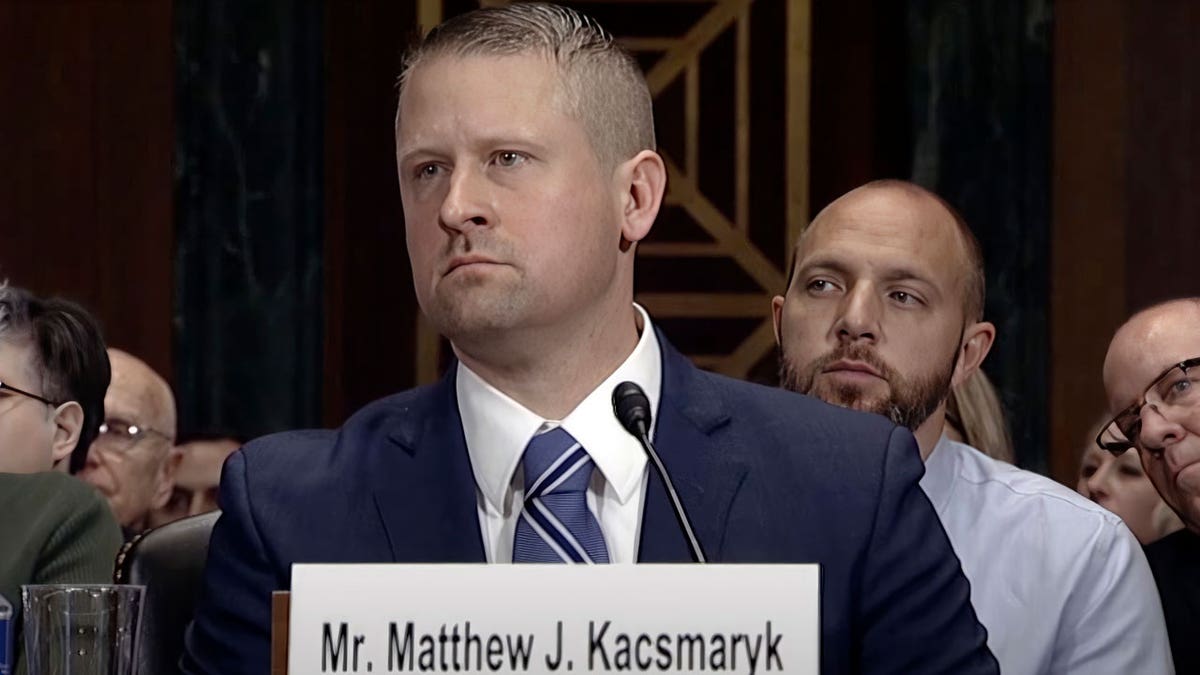
Kacsmaryk, a Trump appointee, previously ruled that parents must be informed when birth control is provided to their children under 18 years old. (Senate Judiciary Committee via AP)
In response, the federal government updated guidelines to state that Title X projects “may not require consent of parents or guardians for the provision of services to minors, nor can any Title X project staff notify a parent or guardian before or after a minor has requested and/or received Title X family planning services.”
Paxton is now seeking a permanent injunction on this rule, which he claims defies the findings of the federal court.

Paxton and his wife Angela are pictured outside the Supreme Court. (Bill Clark/CQ-Roll Call, Inc via Getty Images)
Paxton filed the lawsuit in a federal court in Amarillo. It will likely be heard by Kacsmaryk, the same judge who previously ruled parents must be informed of birth control provided to their children.
-

 World1 week ago
World1 week agoOne dead after car crashes into restaurant in Paris
-

 Midwest1 week ago
Midwest1 week agoMichigan rep posts video response to Stephen Colbert's joke about his RNC speech: 'Touché'
-

 News1 week ago
News1 week agoVideo: Young Republicans on Why Their Party Isn’t Reaching Gen Z (And What They Can Do About It)
-

 Movie Reviews1 week ago
Movie Reviews1 week agoMovie Review: A new generation drives into the storm in rousing ‘Twisters’
-

 News1 week ago
News1 week agoIn Milwaukee, Black Voters Struggle to Find a Home With Either Party
-

 Politics1 week ago
Politics1 week agoFox News Politics: The Call is Coming from Inside the House
-

 News1 week ago
News1 week agoVideo: J.D. Vance Accepts Vice-Presidential Nomination
-

 World1 week ago
World1 week agoTrump to take RNC stage for first speech since assassination attempt




